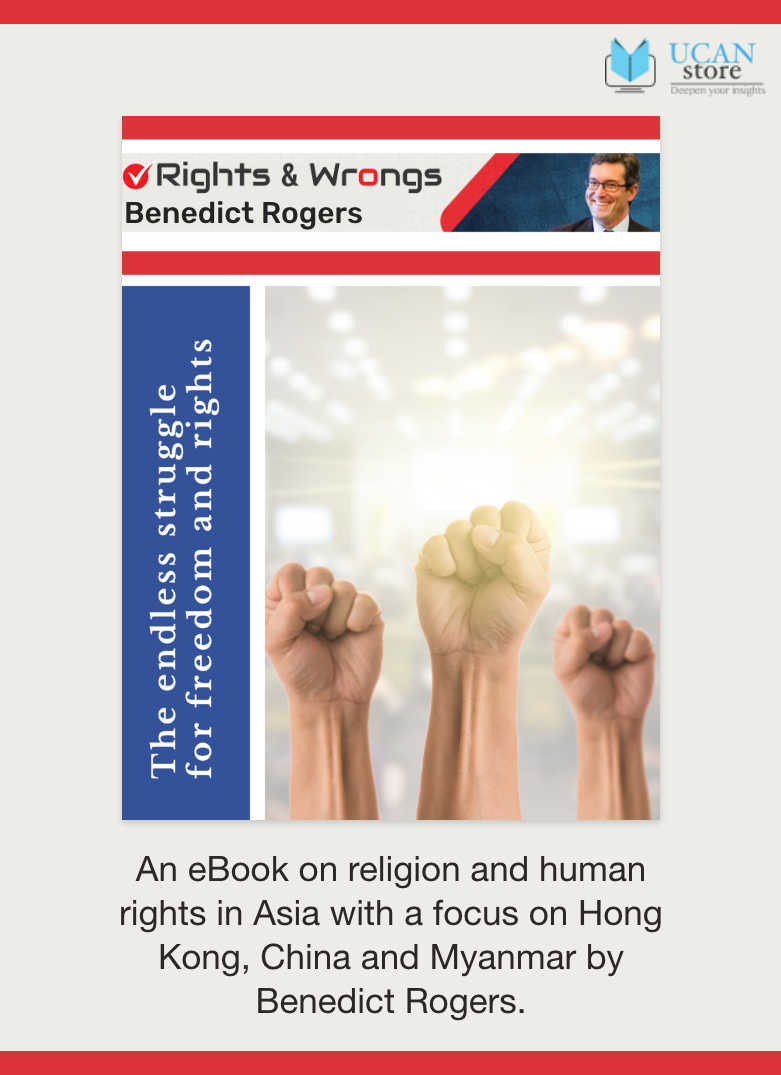
An independent press is vital for the robust functioning of a democratic republic, Supreme Court says in landmark ruling

Members of the Indian media gather at the Supreme Court in New Delhi on Nov. 9, 2019. (Photo: AFP)
India’s Supreme Court last week lifted a telecast ban on a television channel based in southern India. It comes more than a year after the federal government refused to renew the channel’s license to operate because of “national security concerns” over its alleged links to a Muslim group.
The case should be seen as a milestone in contemporary India, where secularists often accuse sectarian politicians of spreading religion-based hate and arm-twisting media for political gains. They also lament that vital pillars of Indian democracy — the legislature, executive, judiciary, and media — are being influenced by the Hindu majoritarian thought process at the cost of religious and ethnic minorities.
Against such criticism, the Supreme Court verdict comes as a beacon of hope for minorities. It is particularly so as the verdict comes from the Supreme Court, the last resort for petitioners for justice.
Earlier, the High Court in Kerala, where the channel Mediaone is based, upheld the federal government’s move against the channel. But the Supreme Court took a firm stand for media freedom and independence.
“An independent press is vital for the robust functioning of a democratic republic. Its role in a democratic society is crucial for it shines a light on the functioning of the state,” the Supreme Court said on April 5, while ordering the restoration of the channel’s license within four weeks.
The news channel, which broadcasts in Kerala’s Malayalam language, is owned by Madhyamam Broadcasting Limited, reportedly with Muslims owning majority shares.
"A homogenized view on issues that range from socioeconomic polity to political ideologies would pose grave dangers to democracy"
The suspension of its broadcasting license was seen, at least by a section of people in Kerala, as administrative arrogance that aims to silence media criticism about the government. Most people in Kerala saw it as a Muslim channel critical of policies of the pro-Hindu Bharatiya Janata Party, and the federal government headed by it.
“The press has a duty to speak the truth to power, and present citizens with hard facts enabling them to make choices that propel democracy in the right direction. The restriction on the freedom of the press compels citizens to think along the same tangent. A homogenized view on issues that range from socioeconomic polity to political ideologies would pose grave dangers to democracy,” the court said in its 134-page landmark order.
The federal government, while the case was being heard in the Kerala High Court, submitted information in a sealed cover to the court on the plea that the channel was a threat to national security. But the government did not disclose the reasons behind such a conclusion.
The channel’s lawyer argued such a move denied them an opportunity to defend themselves against the accusation of being a threat to national security.
The Supreme Court said by “not disclosing the relevant material” to the accused and disclosing it “only to the court in a sealed cover have violated the appellant’s right to a fair hearing” in the court.
Lawyers like Father A Santhanam, a Jesuit based in the southern Indian state of Tamil Nadu, say the Supreme Court verdict has come “at a time when the dissenting voice of media has become a rare phenomenon in the country.”
He said, “Every media house is under pressure to swallow the truth.”
The priest, a convener of the National Lawyers Forum of Religious and Priests, said, “National security has become a handy tool and usual garb for the government to stifle the voices of disagreement.”
"Media outlets instead of asking those in power questions continue to question the opposition that has been out of power for over eight years"
In many cases, rights activists, journalists, comedians, and others who openly expressed their views and questioned the policies of the government led by Prime Minister Narendra Modi were arrested and jailed.
The case of an aged Jesuit priest stands out. Father Stan Swamy, the 85-year-old tribal rights activist died as an under-trial prisoner on July 5, 2021, nine months after he was charged with sedition. The rights activist publicly opposed several anti-tribal policies of the government.
Media outlets instead of asking those in power questions continue to question the opposition that has been out of power for over eight years, fearing retribution from the government agencies.
The latest ruling of the Supreme Court shows the critical need to preserve the independence of the media in a democratic form of governance.
The court brings “a fresh lease of life to the media that has been gasping for breath,” observed Father Babu Joseph, a former spokesperson of the Catholic Bishops Conference of India.
The media in India to a large extent used to be independent in its reporting while expressing opinions on a variety of issues without fear or favor. But recent developments give a feeling that the free space available to them earlier has been shrinking, the Divine Word priest said.
The Supreme Court verdict is a welcome intervention when media is forced to work from a truncated space with little or no room for airing dissenting voices and opinions.
*The views expressed in this article are those of the author and do not necessarily reflect the official editorial position of UCA News.
Help us keep UCA News independent
The Church in Asia needs objective and independent journalism to speak the truth about the Church and the state.
With a network of professionally qualified journalists and editors across Asia, UCA News is just about meeting that need. But professionalism does not come cheap. We depend on you, our readers, to help maintain our independence and seek that truth.
A small donation of US$2 a month would make a big difference in our quest to achieve our goal.

Share your comments